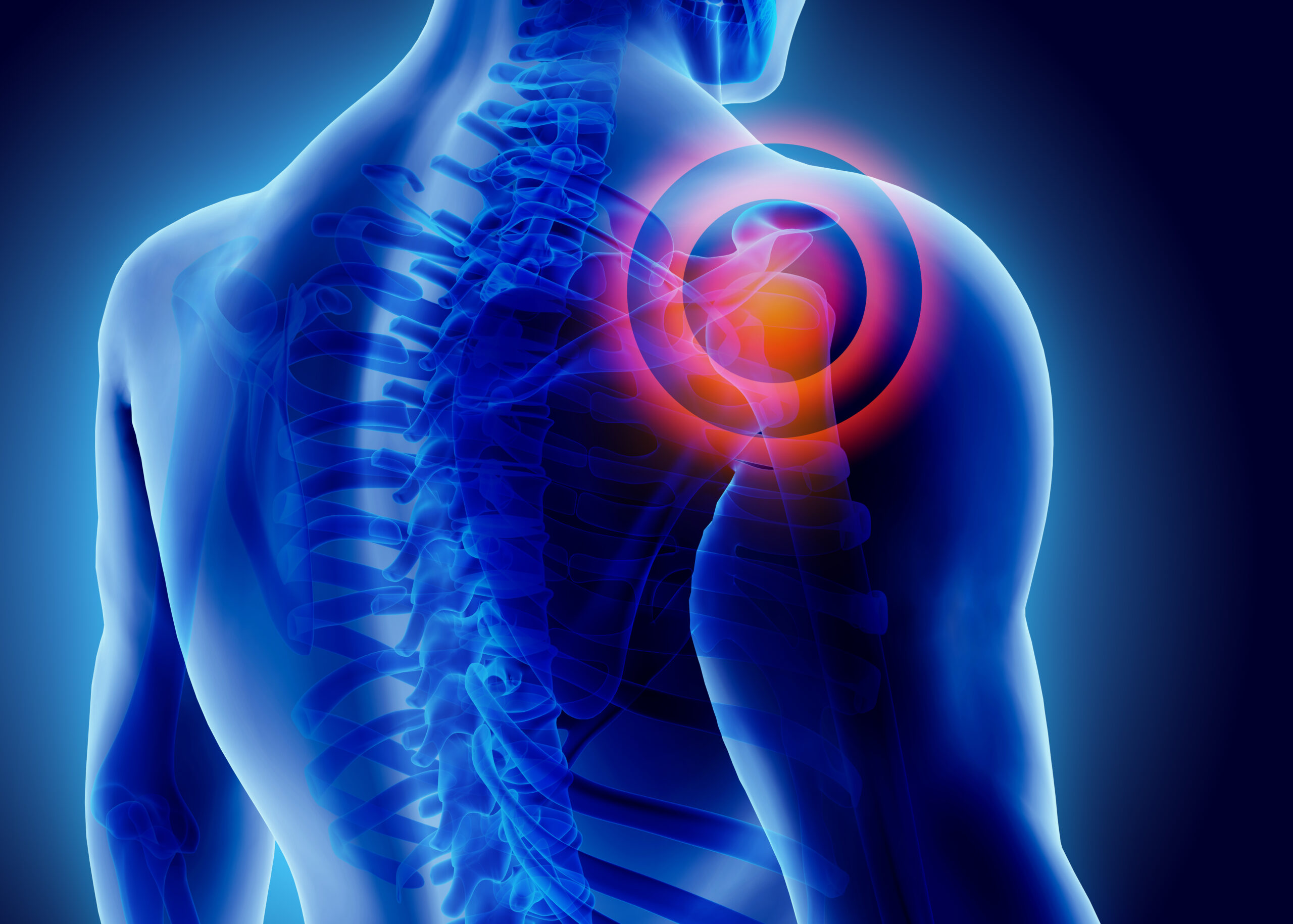We use our shoulders more than we think. The shoulder is the most flexible joint in the human body making it the most prone to dislocation. Any pain in or around the shoulder joint can really throw a wrench in your daily activities, so what exactly is causing that pain?
The most common cause of shoulder pain is related to the rotator cuff: a group of muscles and tendons that attach to the bones of your shoulder joint. This allows your shoulder to move and remain stable. Pain in your rotator cuff area usually means you have rotator cuff tendinitis or inflammation of these tendons along with inflammation of the bursa, the smooth slippery sacs the tendons glide over.

Rotator cuff tendinitis can develop by keeping your arm in the same position for long periods or sleeping on the same arm each night. Additionally, engaging in sports activities that demand repetitive overhead arm movements can also lead to tendonitis. If you have tendinitis, you’ll have pain when you lift your arm over your head. Initially, the pain might be mild, but it can escalate over time, causing discomfort even at rest or during the night, particularly when lying on your shoulder.
Rotator cuff tears can occur from falling on your arm while it is outstretched, or after a sudden, jerking motion when trying to lift something heavy. The pain of a sudden rotator cuff tear can be intense. Weakness in the shoulder and a snapping sound upon movement may also occur. Typically, individuals with rotator cuff tears report heightened pain at night and upon waking up.
Chronic tears transpire over time, particularly in people with chronic tendinitis. At some point, the tendon wears down and starts to tear. Chronic symptoms include gradual worsening of pain, weakness, stiffness or loss of motion.
Rotator Cuff Issues are not the sole source of shoulder pain.
Other Causes of Shoulder Pain:
- Arthritis
- Broken or Fractured Shoulder Bone
- Shoulder Dislocation
- Frozen Shoulder
- Muscles, tendons, and ligaments become stiff
- Cartilage Tear
- Result of repetitive motion
- Impingement
- Tendons of the rotator cuff get pinched in shoulder bones
- Bone Spurs
- Small, smooth bone pieces rubbing against rotator cuff
- Bursitis:
- Inflamed bursa (fluid-filled sac) causing irritation
- Often due to repetitive motions or injury
- Pain heightened during shoulder movement
- Osteoarthritis:
- Common form of arthritis affecting shoulders
- Cartilage breakdown between bones leading to rubbing
- Rheumatoid Arthritis:
- Autoimmune disease attacking joint’s protective lining
- Causes pain and stiffness in shoulders

“Shoulder discomfort is common among older people, typically due to injury, arthritis, and normal wear and tear from overuse. It can also affect younger people who participate in sports that involve overhead movements, especially swimming, racquet sports like pickleball or tennis, and baseball,” says Dean Houston, PT, CSCS, Program Manager of Sports Plus Rehab Centers South. “If not addressed, shoulder discomfort can lead to more serious issues. Most of the time, shoulder pain can be taken care of at home with rest, icing the affected area and over-the-counter medication. In many cases, physical therapy can often provide relief of symptoms and help to restore normal function.”
“If you experience sudden, intense pain after falling on your shoulder, it’s advisable to consult a doctor as you may have torn your rotator cuff, dislocated your shoulder or sustained a fracture. If the injury is severe, characterized by intense pain, swelling, bruising, or bleeding, it’s recommended to seek immediate medical attention at your closest hospital emergency room. Other signs that a shoulder injury may require medical attention include stiffness, arm weakness or numbness, limited or reduced motion, a misshaped shoulder joint or feeling as though the shoulder socket is loose.
Sudden shoulder pain can also be a sign of a heart attack. If you have sudden pressure or crushing pain in your shoulder, especially if the pain starts in your chest, jaw, or neck, call 911 immediately.
Shoulder pain regardless of its source can affect your day-to-day life. If you have been experiencing shoulder pain that will not resolve or is worsening, West Tennessee Healthcare has specialists who can help. To schedule an appointment, click here.
